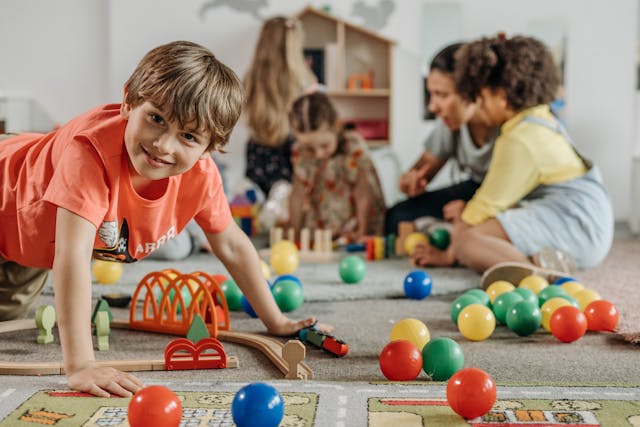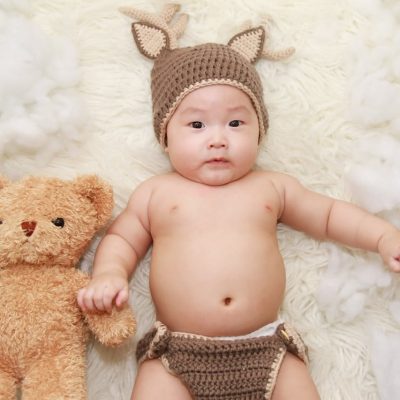Emotional development is a crucial aspect of a preschooler’s growth, shaping their ability to understand, express, and regulate their emotions. It also plays a vital role in forming relationships, developing empathy, and handling social interactions. As a parent or caregiver, understanding the emotional development in preschoolers and ways to support their growth can create a strong foundation for their future well-being.
Understanding Emotional Development in Preschoolers
Between the ages of 3 and 5, preschoolers experience significant emotional growth. They begin to recognize and manage emotions, understand social cues, and develop independence. At this stage, they are still learning how to control their impulses and reactions. Their ability to cope with frustration, express feelings appropriately, and engage in cooperative play improves with time and guidance.
Key Emotional Milestones for Preschoolers
1. Recognizing and Expressing Emotions
By the age of three, children start identifying their feelings and naming them. They might say, “I’m happy,” “I’m sad,” or “I’m angry.” By four or five, they begin to understand the intensity of emotions and express them more effectively.
2. Developing Empathy
Preschoolers start recognizing the emotions of others and show concern when someone is upset. They may try to comfort a sad friend by offering a hug or sharing a toy.
3. Learning Emotional Regulation
Children at this stage learn how to manage their emotions. They may still experience tantrums, but they also begin using strategies such as deep breathing or seeking comfort from an adult to calm down.
4. Engaging in Cooperative Play
Preschoolers start forming friendships and enjoying group activities. They learn how to take turns, share, and navigate minor conflicts with guidance.
5. Gaining Independence and Confidence
Children develop self-confidence and independence in their emotions. They start making decisions and showing pride in their accomplishments, like dressing themselves or completing a puzzle.
Challenges in Emotional Development
While preschoolers make significant progress in emotional development, they still encounter challenges such as:
- Difficulty Managing Big Emotions: Preschoolers may struggle with anger, frustration, or disappointment and may need help navigating these feelings.
- Separation Anxiety: Some children find it hard to separate from parents when starting preschool.
- Social Conflicts: They may experience difficulty sharing, taking turns, or handling disagreements with peers.
- Fear and Anxiety: Common fears include being afraid of the dark, loud noises, or unfamiliar situations.
How to Support Emotional Development in Preschoolers
As a parent or caregiver, you play a crucial role in nurturing your child’s emotional growth. Here are practical ways to support their development:
1. Encourage Emotional Expression
- Help children name their emotions by saying, “You look frustrated. Do you need help?”
- Use books and storytelling to teach about different emotions and how to manage them.
- Validate their feelings and let them know it’s okay to feel sad, mad, or scared.
2. Teach Self-Regulation Strategies
- Encourage deep breathing exercises or counting to ten when they feel overwhelmed.
- Offer a calming space where they can relax when upset.
- Model how to express emotions calmly and respectfully.
3. Foster Empathy and Social Skills
- Encourage children to think about how others feel in different situations.
- Praise them when they show kindness or help a friend.
- Role-play social interactions, like asking a friend to play or resolving conflicts.
4. Support Independence and Confidence
- Let them make choices, such as picking out their clothes or deciding between two snacks.
- Celebrate their achievements and efforts, no matter how small.
- Give them age-appropriate responsibilities, like putting away toys.
5. Provide a Safe and Nurturing Environment
- Establish consistent routines to help them feel secure.
- Be patient and reassuring when they experience emotional struggles.
- Encourage open communication so they feel comfortable sharing their feelings.
The Role of Preschool in Emotional Development
Preschool settings provide a valuable environment for emotional growth. Teachers and caregivers support children in learning social rules, developing friendships, and handling emotions effectively. Preschool programs emphasize:
- Structured Play that promotes cooperation and problem-solving.
- Group Activities that teach patience, teamwork, and communication.
- Conflict Resolution Guidance to help children handle disagreements in a positive way.
When to Seek Professional Help
While emotional development varies among children, some signs may indicate a need for additional support, such as:
- Frequent and intense tantrums beyond the typical preschool stage
- Extreme difficulty separating from caregivers
- Lack of interest in social interactions
- Persistent fears or anxieties that interfere with daily life
- Aggressive or withdrawn behavior
If these concerns persist, consulting a pediatrician, child psychologist, or early childhood specialist can provide helpful strategies and interventions.
Final Thoughts
Emotional development in preschoolers lays the foundation for lifelong emotional intelligence, resilience, and healthy relationships. By encouraging emotional expression, teaching regulation skills, and providing a nurturing environment, parents and caregivers can help preschoolers navigate their emotions successfully. With patience, guidance, and support, children can grow into confident, empathetic individuals who can manage their feelings and social interactions effectively.
















